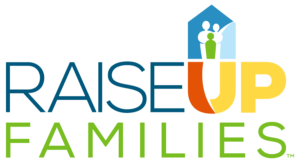Education is a great equalizer, giving people who grew up in poverty a chance to get a well-paying job and create opportunities for their children.
However, there are many barriers preventing low-income people from getting a good education. These barriers include:
But despite the challenges, there are also many resources dedicated to helping low-income people get an education.
At RaiseUp Families, we work to alleviate poverty through sustainable long-term solutions. That includes supporting people as they get an education!
Education can be very affordable if you know where to look. Let’s explore the top affordable education options.
If you’ve thought about going back to school, you might think the biggest barrier is money. Maybe you have friends who went to college for a few years before dropping out with lots of debt and no degree to show for it.
But there’s good news! Plenty of financial help is available, especially for low-income or first-generation students.
Still, you’ll find there are many hurdles to overcome. How do you find and apply for the aid you need? Who will watch your daughter while you’re in school? How will you manage to earn money for basic living expenses? Maybe the scholarship you’re applying to requires an essay, but you’re not used to essay writing and have no idea what to say.

That’s why the first step to getting an affordable education is to assess your support system, including family, friends, and community organizations. Support may look like:
Remember: One great resource is your local college or university itself. If you walk into the admissions office and start asking questions, no matter how small your questions feel, there will be someone there whose job is to help you!
Unless you have thousands of extra dollars lying around or wealthy parents willing to pay your tuition, your money for school will come from three main sources:
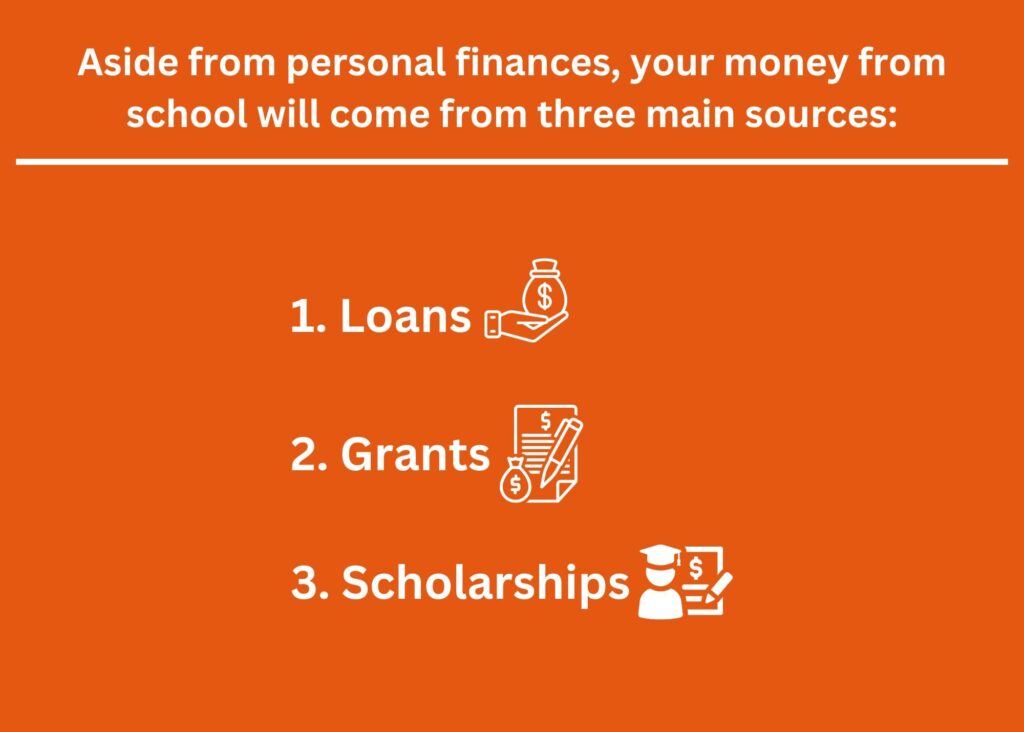
Taking out loans can lead to crippling debt, and if life circumstances force you to drop out of school or take an extended break, having all that debt but no degree is a terrible feeling. It may not be possible to avoid debt entirely, but don’t take out loans until you’ve exhausted your other financial aid options.
Grants and scholarships, on the other hand, are free money you don’t have to pay back.
Grants
Grants are given to you by the government based on your perceived financial need. Several grants are available, but you apply for them all the same way: by going to studentaid.gov and filling out the Free Application for Federal Student Aid (FAFSA).
Filling out the FAFSA should be the first step for anyone with college dreams and financial needs. If you struggle to fill out any part of the form, ask someone from your support network for help!
Sometimes, you can also get grants through your state government. You can find them by Googling or by talking to the people in the financial aid office at the college you want to attend.
Scholarships

Scholarships are similar to grants, but they come from all sorts of places—your school might offer scholarships as well as various organizations or wealthy people in your area.
Some scholarships are offered based on need, some based on merit (such as having good grades), some are based on demographics (such as being female, a minority, or from a particular area), and some are based on a specific field, such as science, math, or engineering.
Here are some tips for applying for scholarships:
Other Income Sources
While loans, grants, and scholarships are the primary sources of money to pay for school, some other options exist, such as work-study programs, school programs that offer free credits for being in organizations like the student newspaper, and programs where an employer will reimburse part of your education in exchange for you agreeing to work there once you have your degree.
Not every education is the same. Some colleges are more expensive than others, and some degrees are more likely to net you a high-paying career than others. Furthermore, some programs better suit your particular challenges than others.
The first step to saving money is to go to a local college. In-state tuition is almost always cheaper than out-of-state tuition, and you’ll be able to lean on your existing support system if you need help navigating the stress and anxiety of school.
Now, let’s explore some of the best affordable education programs.
Community Colleges:
Community colleges are designed for “atypical” students—those who are low-income, older, or who are working or caregiving while attending college. They are much cheaper than four-year universities, offer evening classes for working adults, and are designed for local commuters.
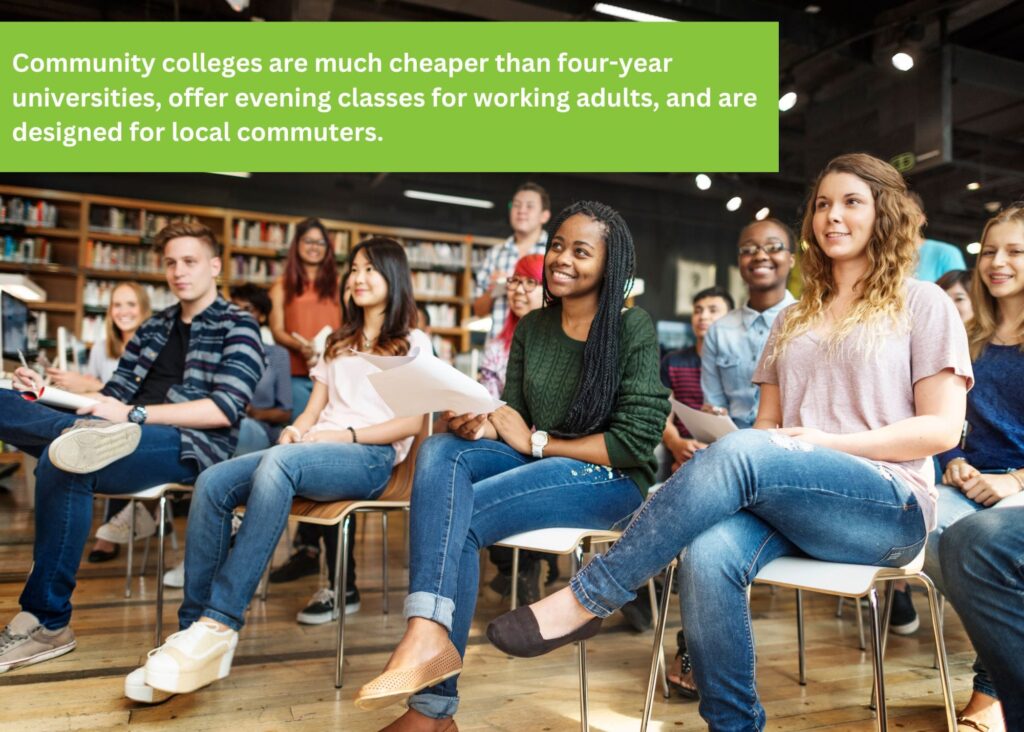
Community colleges offer two-year programs and degrees and options to easily transfer to a 4-year university if you’d like to pursue a bachelor’s degree.
Online Education:
Depending on your circumstances, the flexibility of an online education is highly appealing. However, beware—there are many online scams that will take your money without giving you much in return.
When looking at online degree programs, remember:
Vocational Schools:
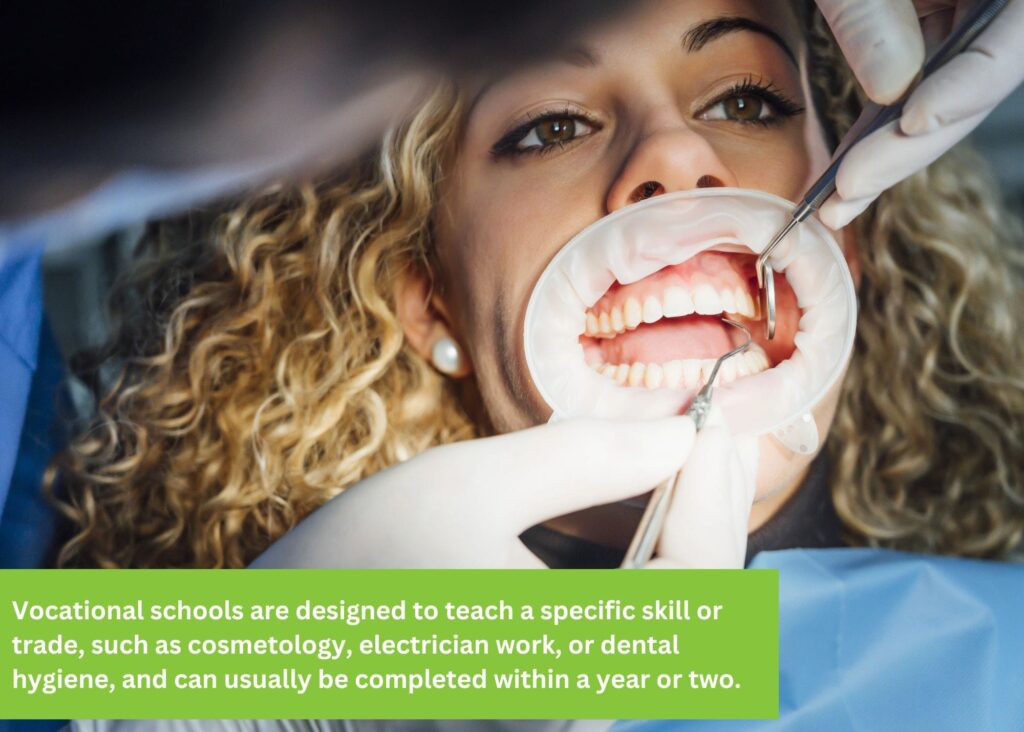
Vocational schools, sometimes called “trade schools” or “technical schools,” are designed to teach a specific skill or trade, equipping you to be a cosmetologist, electrician, dental hygienist, plumber, etc. They’re generally cheaper than traditional 4-year university programs, partly because they’re so focused that you can usually complete them in a year or two.
Vocational schools are a fantastic option for learning the skills for a new career path while spending less time and money than you would going a traditional Bachelor’s degree route.
However, they lock you into one specific career, so talk to someone already in that career about potential pitfalls you may encounter. For example, while dental hygienists make good money, the career can be hard on their back, which is something you should be aware of before going into that field.
Another, similar option is to learn a specific vocation through an apprenticeship program that gives you hands-on experience.
Here at Raise Up Families, we help families in the Houston area become financially stable, which includes offering support to people who want to get more education.
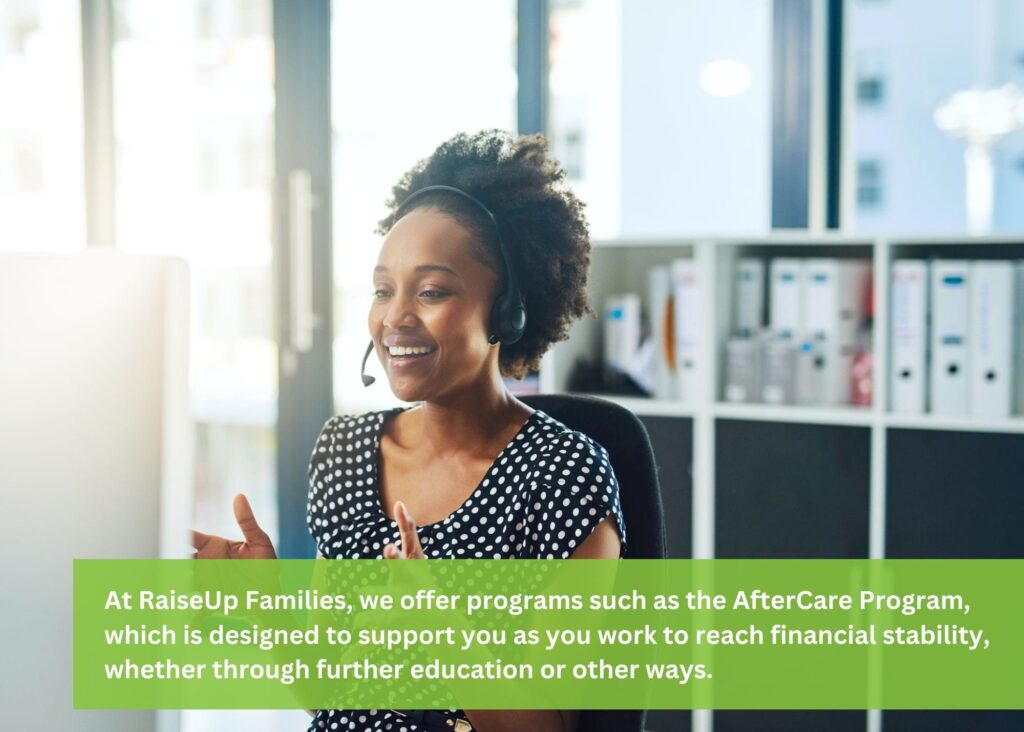
When pursuing higher education, it’s vital to have a support network of people who will help you. That’s why we offer our Aftercare Program, which is designed to support you as you work to reach financial stability, whether through further education or other ways.
In fact, RaiseUp Families recently granted ten $1,500 education scholarships – our first ever Continuing Education Grant Program for qualified AfterCare participants.
You can learn more about our programs, including our Aftercare Program, on our Introduction to RaiseUp Families’ Intervention Model.
If you’d like to access our help and support, apply today! We look forward to working with you as you work to provide a better future for your children.
